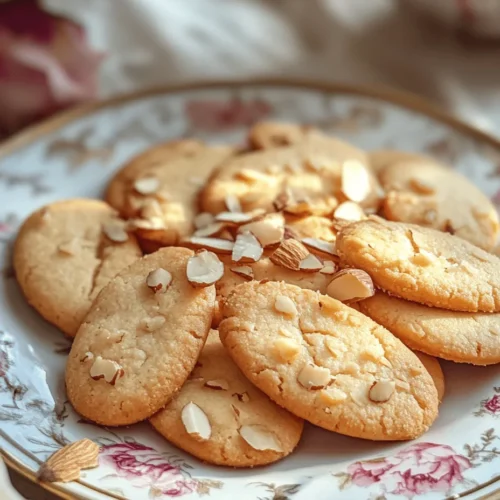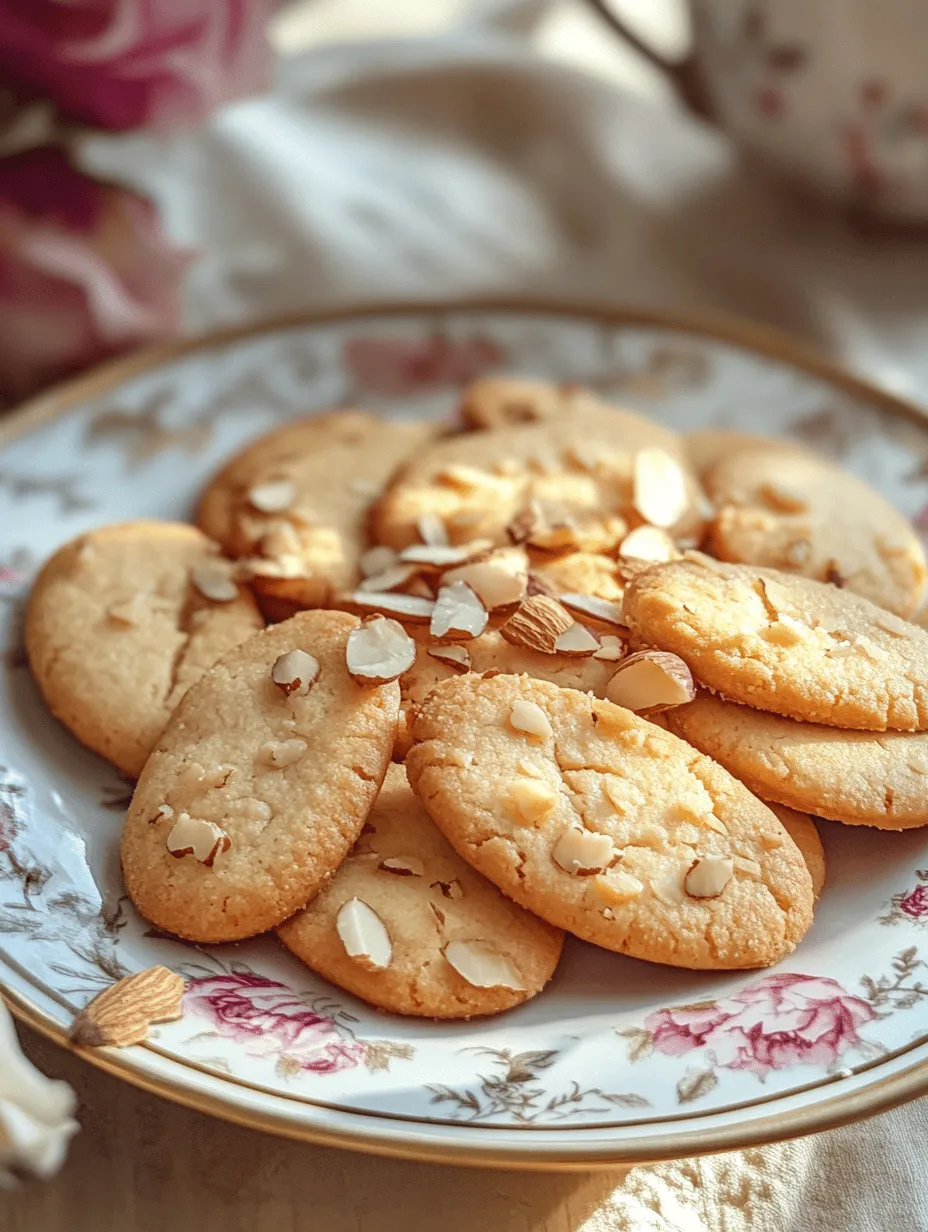Introduction
Şekerpare, a beloved Turkish dessert, holds a cherished place in the heart of Turkish cuisine. This delectable treat, made from a simple dough enriched with butter, semolina, and a touch of sugar, exemplifies the artistry and warmth of Turkish hospitality. Originating from the Ottoman Empire, Şekerpare translates to “sugar piece,” and it certainly lives up to its name with a delightful sweetness that captivates the senses. The dessert’s appeal lies in its unique combination of textures: a soft, melt-in-your-mouth cookie drenched in fragrant syrup.
This iconic Turkish delicacy is more than just a dessert; it symbolizes celebration and togetherness. Whether served at weddings, religious holidays, or family gatherings, Şekerpare brings people together, inviting them to indulge in its sweet, comforting presence. The beauty of this recipe is its simplicity, allowing even novice bakers to recreate the magic of Şekerpare in their own kitchens. The joy of making this dessert at home not only fills your kitchen with a warm, inviting aroma but also provides a rewarding experience as you share this piece of Turkish culture with your loved ones.
The Allure of Şekerpare
The history of Şekerpare is deeply intertwined with Turkish culinary traditions. It is believed that this dessert has roots in the Ottoman era, showcasing the empire’s love for sweets that were often flavored with fragrant ingredients like rose water and citrus. Over the centuries, Şekerpare has evolved, but its fundamental characteristics—sweet, syrup-soaked, and nut-topped—have remained intact, making it a timeless classic.
In Turkey, Şekerpare is often associated with festive occasions. It graces the tables during Ramadan, special celebrations, and family gatherings, serving as a sweet ending to an elaborate meal. Its popularity has also transcended borders, inviting variations in neighboring countries and beyond, each with its unique twist. For instance, similar desserts can be found in Greek and Middle Eastern cuisines, such as the Greek “Kourabiedes” or the Lebanese “Maamoul,” both of which feature a buttery base and often include nuts. However, Şekerpare stands out due to its syrup-soaked nature, which imbues each bite with a luscious sweetness that is hard to resist.
Ingredients Breakdown
To create the perfect Şekerpare, it is essential to understand the role of each ingredient in the recipe. Here is a detailed breakdown of the components that contribute to the deliciousness of this dessert:
1. Unsalted Butter: The star of the dough, softened unsalted butter is crucial for achieving the rich, buttery flavor that defines Şekerpare. It creates a tender crumb and ensures that the cookies have the right melt-in-your-mouth texture.
2. Powdered Sugar: Unlike granulated sugar, powdered sugar dissolves easily, providing a smooth sweetness without any graininess. This helps to maintain the delicate texture of the dough and enhances the overall sweetness of the dessert.
3. Egg: Eggs are vital for binding the ingredients together and contribute to the structure of the cookies. They help the dough hold its shape while baking and add a richness that complements the other flavors.
4. Vanilla Extract: A splash of vanilla extract elevates the flavor profile of the Şekerpare, adding a warm and aromatic note that beautifully complements the sweetness of the cookie.
5. All-Purpose Flour and Semolina: This combination is key to achieving the desired texture. All-purpose flour provides structure, while semolina adds a delightful graininess that enhances the mouthfeel. Together, they create a balanced dough that is both tender and satisfying.
6. Baking Powder and Baking Soda: These leavening agents work together to ensure that the Şekerpare rises slightly during baking, resulting in a light and airy texture. They also contribute to the overall spread of the cookies.
7. Salt: A pinch of salt is essential for balancing the sweetness of the dessert. It enhances the overall flavor and prevents the cookies from tasting overly sweet.
8. Nuts for Garnish: Often, Şekerpare is topped with crushed nuts such as pistachios or walnuts. Not only do they add a delightful crunch, but they also introduce a nutty flavor that complements the sweet cookie.
Preparing the Syrup
No Şekerpare is complete without its signature syrup, which transforms the cookies from simple baked treats into a sumptuous dessert. The syrup is not just an afterthought; it is an integral component that infuses the cookies with moisture and flavor. Here’s how to prepare the syrup step by step:
1. Combine Sugar and Water: In a saucepan, combine equal parts sugar and water. For a standard recipe, you would typically use about 2 cups of sugar and 2 cups of water.
2. Heat Until Dissolved: Place the saucepan over medium heat, stirring continuously until the sugar has completely dissolved. This can take about 5-10 minutes, and it’s essential not to let the mixture boil during this stage.
3. Add Lemon Juice: Once the sugar is dissolved, add a tablespoon of fresh lemon juice. This not only adds a slight tang to balance the sweetness but also helps prevent the syrup from crystallizing.
4. Simmer for Consistency: Allow the syrup to simmer for an additional 10-15 minutes. You want to achieve a slightly thickened consistency, which will coat the Şekerpare without making it overly soggy.
5. Optional Rose Water: For an added touch of fragrance, consider incorporating a teaspoon of rose water into the syrup. This step is optional but can elevate the flavor and enhance the traditional essence of the dessert.
The syrup should be ready when it coats the back of a spoon. It’s important to let the syrup cool down a bit before drenching the baked Şekerpare, as this ensures that the cookies absorb the syrup without falling apart.
Making the Dough
With the syrup ready, it’s time to bring the dough together. Here is a step-by-step guide to preparing the Şekerpare dough that will yield deliciously soft and flavorful cookies:
1. Cream the Butter and Sugar: In a large mixing bowl, combine the softened unsalted butter and powdered sugar. Using an electric mixer or a wooden spoon, cream the mixture until it becomes light and fluffy. This process typically takes about 3-5 minutes and is crucial for creating a tender texture.
2. Incorporate the Egg and Vanilla: Once the butter and sugar are well creamed, add the egg and vanilla extract. Mix until fully incorporated, ensuring that the egg is well blended into the mixture.
3. Combine Dry Ingredients: In a separate bowl, whisk together the all-purpose flour, semolina, baking powder, baking soda, and salt. Gradually add the dry ingredients to the wet mixture, mixing until a soft dough forms. Be careful not to overmix, as this could lead to tougher cookies.
4. Chill the Dough: Cover the dough with plastic wrap and refrigerate for at least 30 minutes. Chilling helps to firm up the butter, making it easier to shape the cookies and allowing the flavors to meld.
5. Shape the Cookies: After chilling, preheat your oven to 350°F (175°C). Scoop out small portions of dough, about the size of a walnut, and roll them into balls. Place them on a baking sheet lined with parchment paper, spacing them a few inches apart. Gently flatten each ball slightly with your hand or the bottom of a glass.
6. Add Nuts: If you’re using nuts for garnish, press one or two pieces into the center of each cookie before baking. This not only adds flavor but also enhances the visual appeal of your Şekerpare.
7. Bake: Place the baking sheet in the preheated oven and bake for about 20-25 minutes or until the bottoms are lightly golden. Be careful not to overbake, as you want the cookies to remain soft.
As the Şekerpare bakes and fills your kitchen with its sweet aroma, you can prepare for the final step: drenching them in the prepared syrup. The marriage of the warm cookies with the cool syrup creates a delightful contrast that is simply irresistible.
Stay tuned for the next part of this article, where we will delve into the final touches and tips for serving your homemade Şekerpare, ensuring that your experience is as rewarding as the dessert itself.

Importance of Creaming Butter and Sugar Properly
When making Şekerpare, one of the pivotal steps is creaming the butter and sugar together. This process is not just about mixing ingredients; it’s essential for achieving the right texture and flavor. Proper creaming incorporates air into the mixture, which contributes to the lightness of the cookies. The butter should be at room temperature to ensure it blends smoothly with the sugar, creating a fluffy, pale mixture. Aim for a creamy consistency, which usually takes about 3-5 minutes of mixing at medium speed if using a stand mixer. This step lays the foundation for your Şekerpare, helping to ensure that they rise properly during baking and develop a tender crumb.
Combining Wet and Dry Ingredients Effectively
Once your butter and sugar are creamed to perfection, it’s time to combine the wet and dry ingredients. Start by sifting the flour and baking powder together to eliminate any lumps and ensure even distribution of the leavening agent. Gradually add the dry ingredients to the creamed mixture, alternating with the wet ingredients, such as the egg and yogurt. This incorporation method allows for better mixing without overworking the dough, which can lead to tough cookies.
Be cautious with the amount of flour; adding too much can lead to a dry dough. The goal is to achieve a soft, slightly sticky texture that holds its shape when molded. If the dough feels overly sticky, you can chill it in the refrigerator for about 30 minutes. This will make it easier to handle when shaping the cookies.
Common Pitfalls to Avoid
Every baker has encountered setbacks, and Şekerpare is no exception. One common pitfall is ending up with dough that is too sticky. If this happens, it can be challenging to shape the cookies, leading to frustration. The key to preventing this is to measure your flour accurately and adhere to the mixing techniques outlined. If you find the dough is still too sticky after chilling, you can lightly dust your hands and the work surface with flour. However, avoid adding too much flour as it can alter the delicate texture that makes Şekerpare so delightful.
Shaping and Decorating the Cookies
Shaping your Şekerpare is where creativity meets tradition. Using your hands, take small portions of dough—about the size of a walnut—and roll them into balls. For uniformity, consider using a small ice cream scoop. Once shaped, gently flatten each ball into a disc, about 1/2-inch thick. This helps them bake evenly and provides a larger surface area for the syrup to soak in later.
A traditional touch is to garnish each cookie with a whole almond or a piece of walnut before baking. This not only adds visual appeal but also enhances the flavor profile. The nuts provide a delightful crunch that contrasts beautifully with the soft, syrup-soaked cookie. When decorating, feel free to get creative; some bakers even use sesame seeds or pistachios, which can add a unique twist while still paying homage to the traditional recipe.
Baking the Şekerpare
The baking temperature and time are crucial for perfect Şekerpare. Preheat your oven to 350°F (175°C) to ensure an even bake. Arrange the cookies on a parchment-lined baking sheet, leaving enough space between them to allow for slight spreading. Bake for approximately 20-25 minutes, or until the cookies are lightly golden.
To determine doneness, look for a slight color change and a firm texture. The edges should be set, while the center remains soft. Remember, these cookies will continue to cook slightly from residual heat after being removed from the oven, so it’s best to err on the side of slightly underbaking them.
Once the Şekerpare are baked, the next crucial step is pouring the syrup immediately over them while they are still hot. This step is vital as it allows the cookies to absorb the syrup, enhancing their flavor and moisture. The contrast between the warm cookies and the cold syrup creates a delightful experience.
Soaking: The Final Touch
Soaking your Şekerpare in syrup is what transforms them into the deliciously chewy and syrupy dessert that everyone loves. The syrup, usually made from sugar, water, and a hint of lemon juice, infuses the cookies with sweetness and moisture. Allow the cookies to rest in the syrup for at least 30 minutes to an hour before serving. During this time, they will soak up the syrup and become delectably soft, with a texture that melts in your mouth.
It’s essential to note that the longer Şekerpare sit in the syrup, the more pronounced the syrup flavor will be. However, if you prefer a lighter syrup taste, you can serve them after a shorter soaking time. For the ultimate experience, let them sit overnight in the refrigerator to allow the flavors to meld beautifully.
Serving Suggestions
Şekerpare can be served in various delightful ways. Traditionally, they pair wonderfully with a cup of Turkish coffee or tea, enhancing the overall experience with their sweet and syrupy nature. When presenting these cookies to guests, consider arranging them on a decorative plate with a sprinkle of crushed nuts or a dusting of powdered sugar for an elegant touch.
For an innovative serving suggestion, try pairing Şekerpare with a scoop of vanilla ice cream or fresh berries. The contrast of temperature and texture elevates the dessert and provides a refreshing balance to the sweetness of the cookies. Experimenting with different accompaniments can create a sophisticated dessert experience that will impress any guest.
Cultural Significance
Şekerpare holds a special place in Turkish culture, often associated with celebrations and gatherings. These cookies are frequently served during festive occasions, family gatherings, and whenever hospitality is extended to guests. The act of making Şekerpare can be a bonding experience, often involving family members gathering in the kitchen to create this beloved treat together.
Personal anecdotes surrounding Şekerpare can enhance the experience of making them. Perhaps you recall baking them with a grandparent or sharing them with friends during a memorable celebration. This recipe not only connects you to the culinary traditions of Turkey but also allows you to create new memories with loved ones.
Conclusion
In conclusion, making Şekerpare at home is a rewarding experience that brings the joy of Turkish hospitality right into your kitchen. From the creaming of butter and sugar to the final syrup soak, each step is an opportunity to embrace this traditional recipe and celebrate cultural heritage. The satisfaction of sharing these sweet delights with family and friends is immeasurable. So, roll up your sleeves, gather your loved ones, and embark on the delightful journey of making Şekerpare. By doing so, you’re not just creating a dessert; you’re crafting a connection to a rich cultural legacy that can be enjoyed for generations to come.


